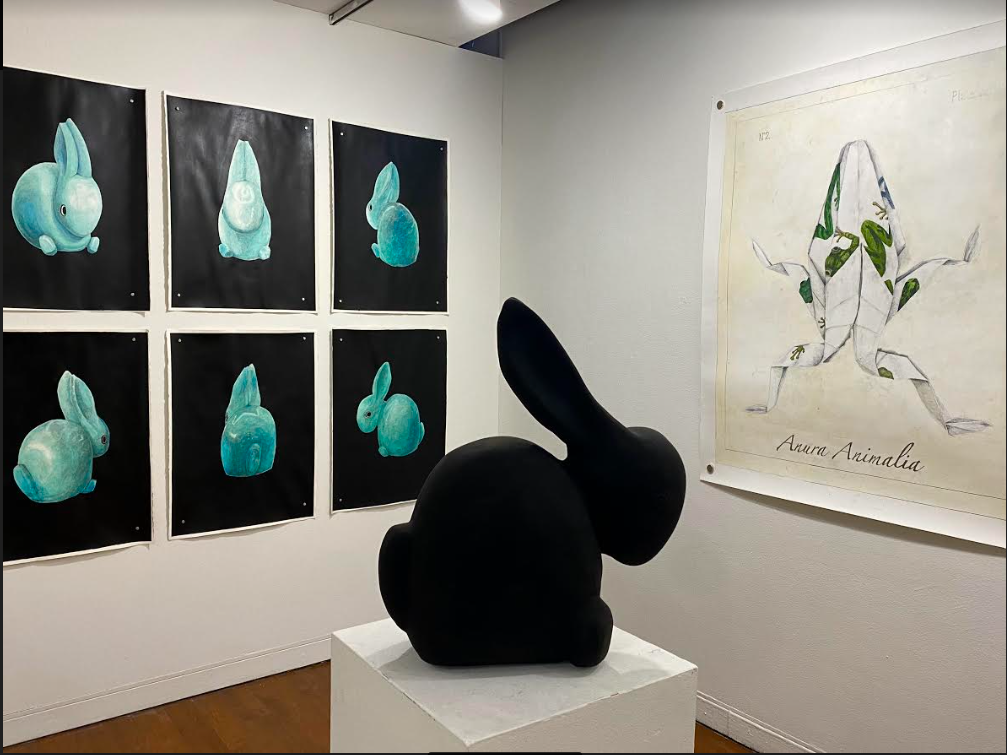What is nature? When you imagine nature, do you think about humans? Does it conjure up images of a quiet forest, waves crashing on a pristine beach, and the sun rising over untouched mountains? Often, we don’t imagine humans as a part of the natural landscape, instead viewing ourselves and our creations as separate and distinct from the organic world around us. How do we reconcile our idea of humanity with our idea of nature, as we are animals ourselves?
Artist Aaron Delehanty explores questions such as these through his work. Delehanty, a lifelong Rochesterian and environmentalist, creates pieces that focus on the boundary between nature and humankind. His goal, no matter the media or technique he uses, is to challenge the way we systemize our natural world.
His work The Natural Center is currently on exhibit in the Art and Music Library’s Frontispace Gallery. Each one of the mixed media paintings and sculptures intertwines themes of nature and humanity, exploring feelings of unnaturalness or discomfort in the spaces where they meet.
The most prominently placed piece is the watercolor series, Specimens and Artifacts, on the back wall of the exhibit. These six blue and black portraits are foregrounded by their subject, the charcoal-black sculpture Bunny. But the artworks I find most striking are the two paintings and series of sculptures that lie along opposite walls.
The first painting, titled Food Chain, is created in watercolor with pencil and ink detailing. It features three terrariums, each containing different animals. The first shows a snake arching unnaturally as it rears up to strike a mole. The second shows mice climbing stalks of grain. We can see underground, into their tunneled home. The third is a hawk in mid-flight, grasping a hissing snake. Each moment is enclosed in time and space, a single snapshot in a too-small terrarium.
On the other wall, the Origami Audubon Series features imagery from John James Audubon’s famous Birds of America watercolor painting series. Delehanty has taken prints of Audubon’s paintings and folded them into various, intricate shapes. Each piece is a portrait of a painting, uniquely creased or crumbled.
The exhibit also houses four sculpted cranes, each frozen in a unique pose, their backs laden with foliage. The sculptures are beautiful and well-crafted, but the fake flowers and plastic leaves adorning the cranes look like the sad shadows of a true spring. This, I think, is the theme of Aaron Delehanty’s exhibit — using unnatural materials and methods to represent the natural.
The fabrication of the natural makes it artificial, but acknowledging the unnatural lets us appreciate the truly natural. The bent wing of a falcon beating against glass or the crumpled face of a warbler immortalized on paper scream, “Look, look at this magnificence, captured by human hands. Isn’t it a pity you can never cage the truly beautiful?”
The Natural Center will be on display through Friday, Feb. 17 in the Frontispace Gallery, located on the ground floor of Rush Rhees Library at the Art and Music Library entrance.

